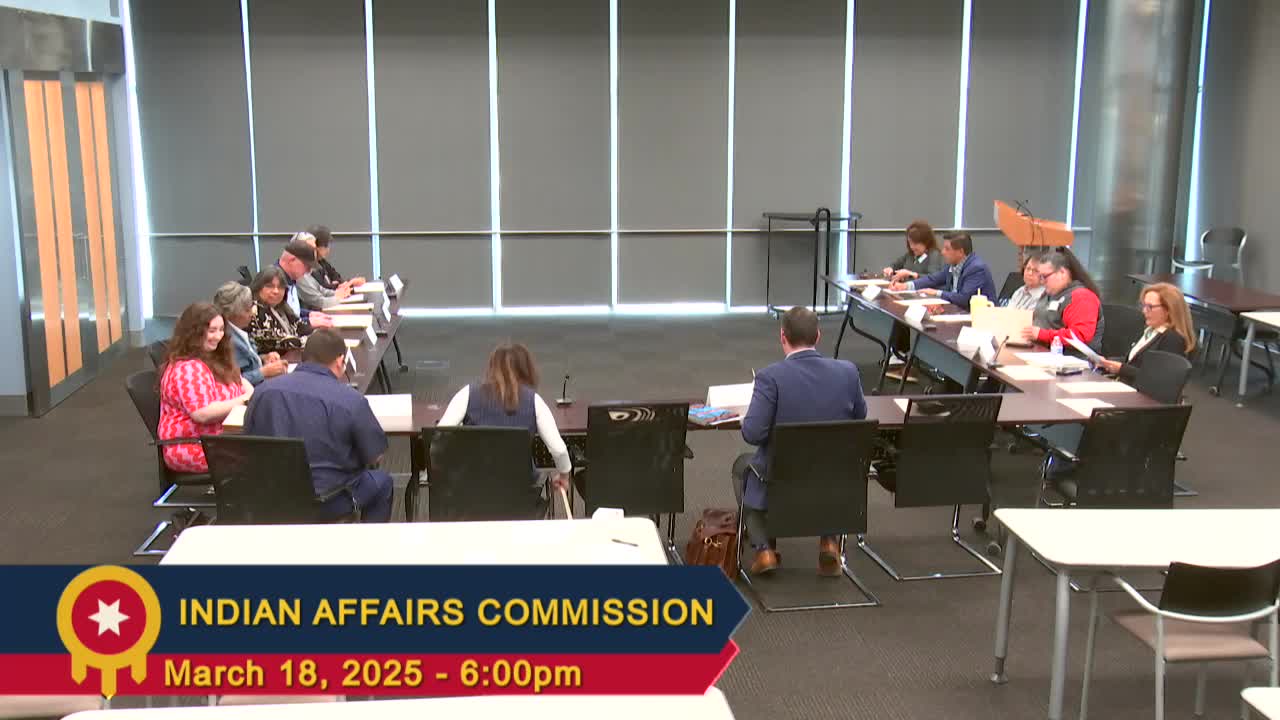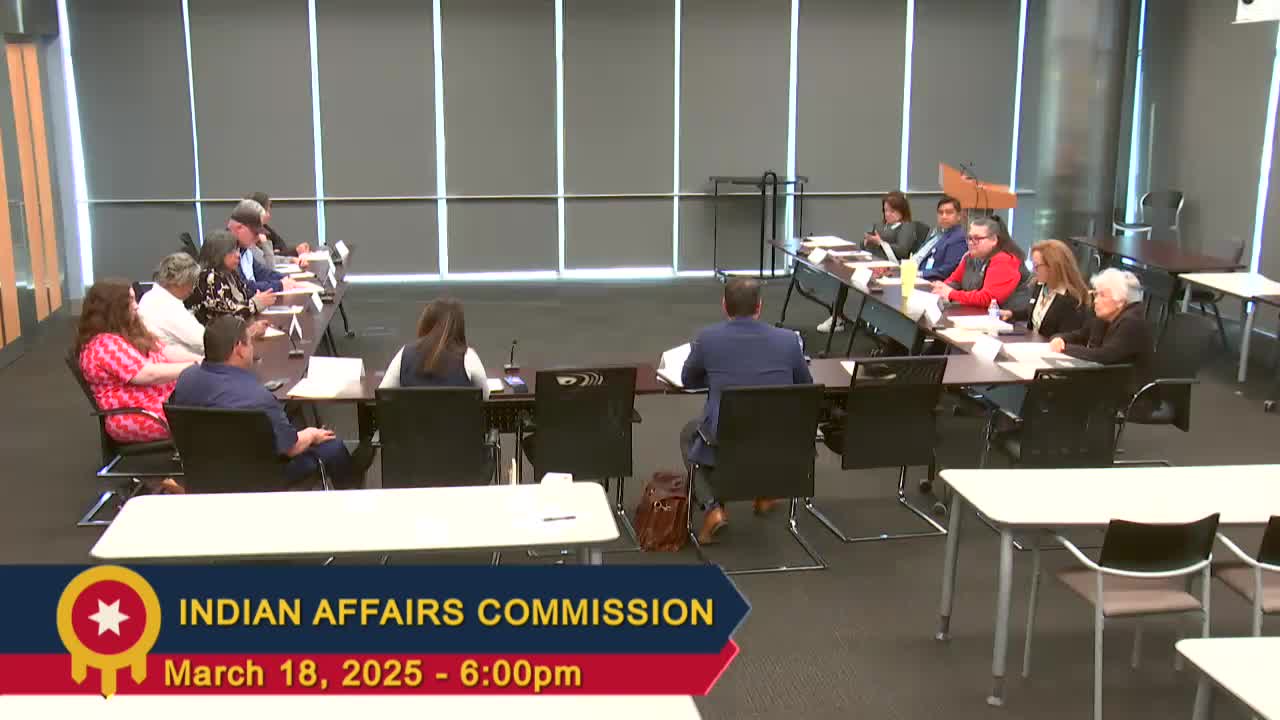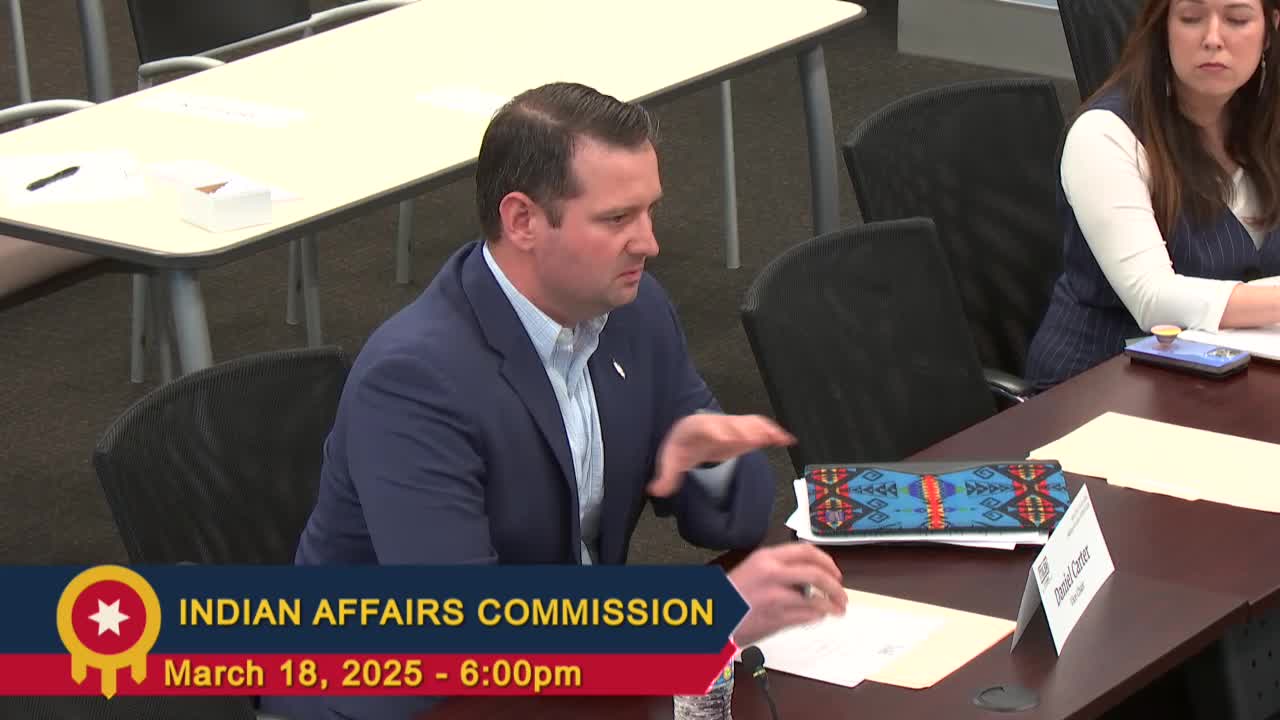Article not found
This article is no longer available. But don't worry—we've gathered other articles that discuss the same topic.

Commission appoints Joyce Roberts to Human Rights Commission; members hear committee reports and event dates

Commissioners flag risk from BIA office lease terminations and service cuts at Pawnee and Osage

